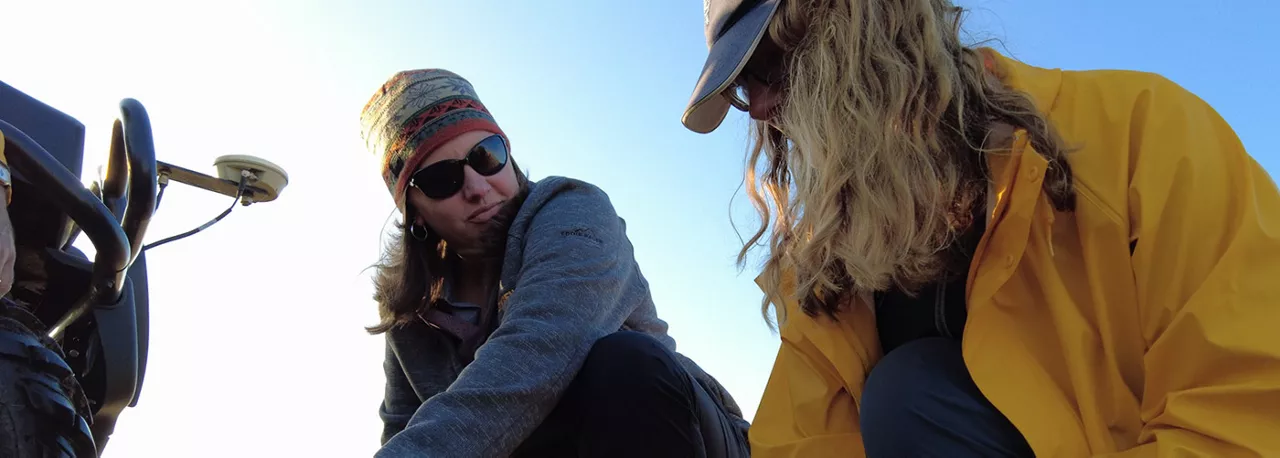
Bayer Grants4Tech 2022: CarbonStock
2022 CarbonStock Grants4Tech challenge, an annual external Bayer program designed to foster innovation, this year focusing on the science of carbon
Machine learning and optimization models are digitally connecting our R&D pipeline to maximize value for farmers and helping Bayer redesign the testing network.
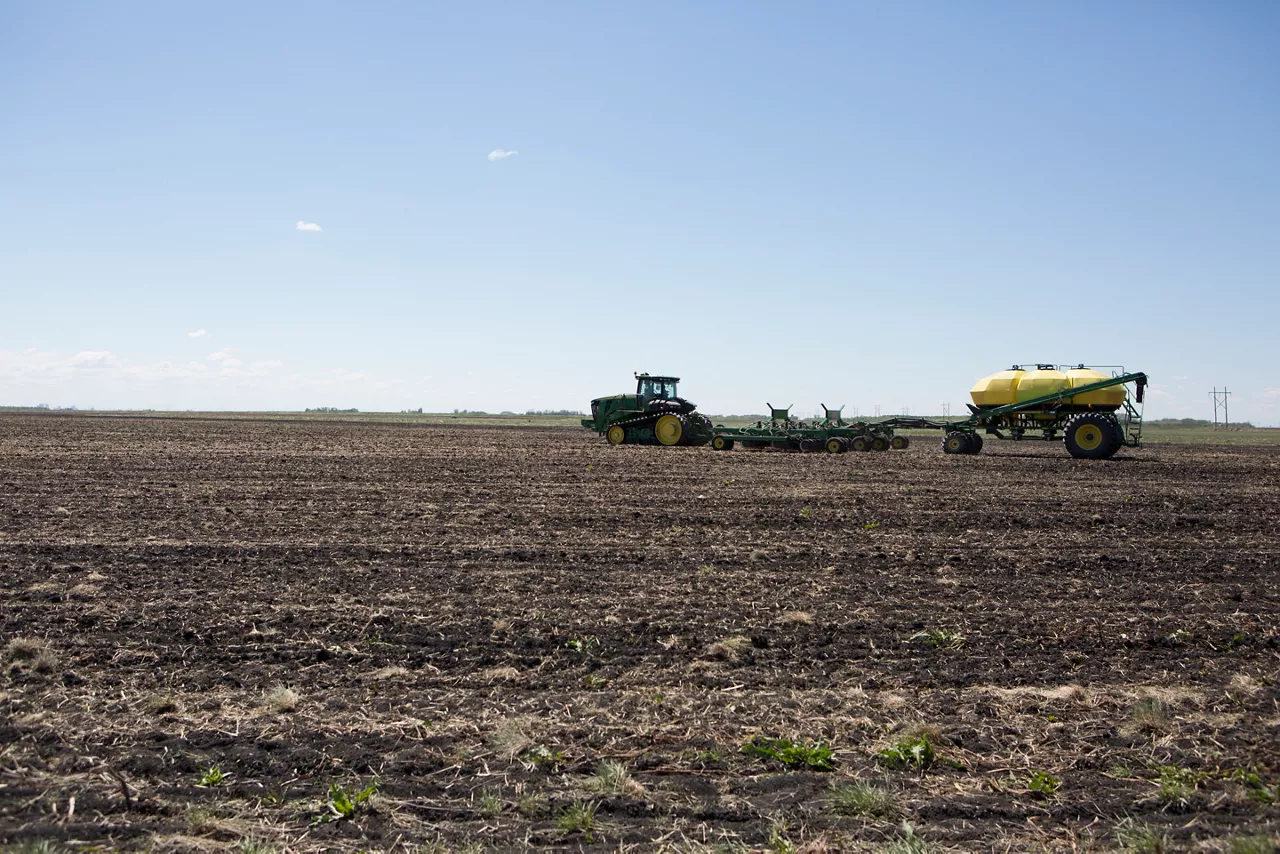
The 2018 discovery science and modeling efforts shifted from a regional corn product placement model, a key component of the current Seed Advisor from FieldView product, to a field-level seed placement tool. This shift enabled modeling to better account for field variability in environmental characteristics (e.g., soils) and farmer operations (e.g., crop rotation and tillage). The models were built on Bayer R&D pipeline data, which includes small research plots managed by the Breeding Organization and large strips managed by the Technology Development Organization. The objective of this blog is to highlight the different machine learning and optimization models driving seed selection decisions for the 2019 farmer alpha program and collaborations with Bayer Crop Science enterprise. Seed recommendation for farmers is driven by an integration of multiple models.
The regional-level placement model has been validated in the field with select farmers in Iowa, Illinois, and Minnesota in 2017 and 2018. Split planter trials were used as a demonstration of model predictiveness. These trials are configured as a Seed Advisor selected product planted side by side against a farmer selected product. Trials were successful nearly 80% of the time with an average >6 bushel per acre of lift using the Seed Advisor selected product.
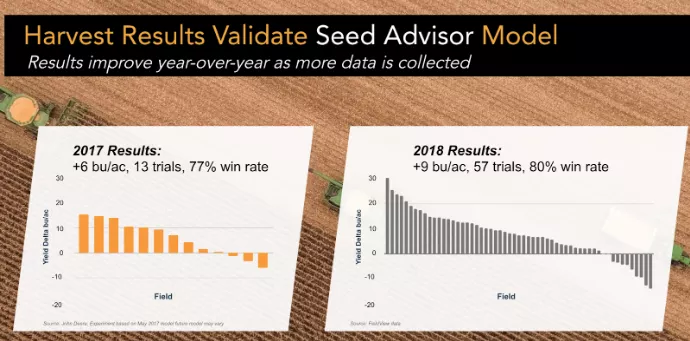
Several new models will enable Seed Advisor to take product recommendations down to the field level. This is highly valuable for farmers as it takes into account many key features that are of importance to them. These include features like pH, organic matter, and cation exchange capacity (CEC), elevation, drainage, tillage, and crop rotation. In total, there are >150 different features that the field level model uses to create a product recommendation.
Under the hood, there are currently four models that capture key decisions for recommending products:

The placement model is a machine learning model that ranks Bayer product performance on farmer fields using field characteristics, operations and management. Through past, head-to-head, independent year cross validations, the placement model has demonstrated an average of 7.8 bu/ac of statistically significant yield lift across >9600 research fields.
The relative maturity risk (RM risk) model is a machine learning model that predicts the probability to harvest a product the 20 - 25% kernel moisture range prior to the fall frost.
The portfolio model is an optimization model that uses the outputs from the above two models to recommend a portfolio across a farmer’s operation. Potential products are derived from the list of products available in the region of interest.
The field assignment model is an optimization model that is implemented after farmers make the final seed order. This step maximizes the overall yield outcome for the farmer’s entire corn operation by selecting top product for fields.
When conditions change, field guides ensure that farmers can select high performing products even if they cannot plant the top product from field assignment - for example, if that top product is unavailable.
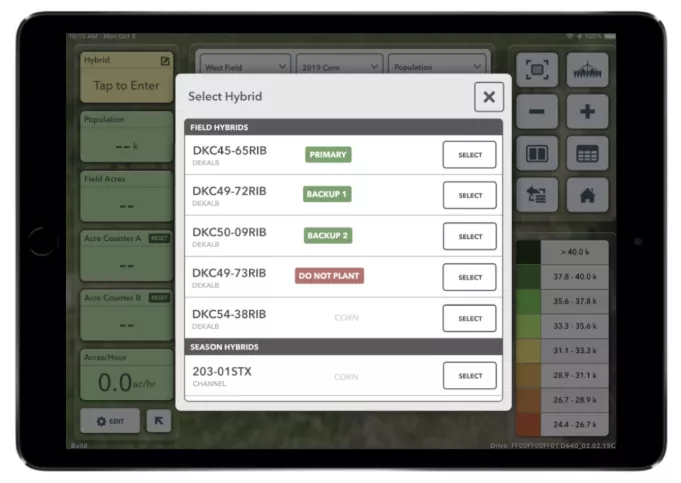
The image above shows an example field guide. This is a simple visual that farmers can access live during planting through the FieldView™ Cab app to ensure they are planting a top product and avoiding products that would be a poor fit for the field.

The alpha program is a pre-commercial program that takes models that have been built (using research data) and validated (against FieldViewTM data) and tests them on farm with farmers in the FieldView Innovators program. Each farmer’s operation is different, and recommendations are built using knowledge about the specific farmer’s operation. The alpha program is a season long partnership that feeds insights back into the Climate LLC science team to refine models.
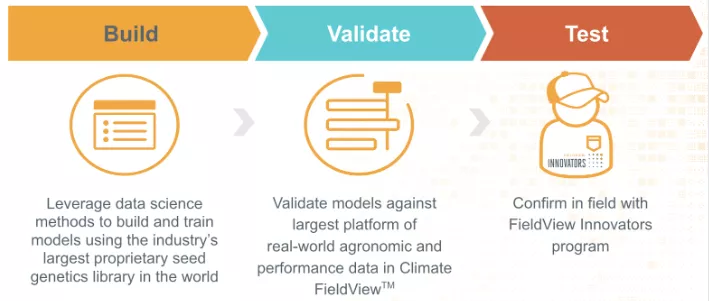
The image above shows an example field guide. This is a simple visual that farmers can access live during planting through the FieldView™ Cab app to ensure they are planting a top product and avoiding products that would be a poor fit for the field.
The alpha program started in 2017 with one farmer in central Illinois (~20K acres). It expanded in 2018 to Illinois, Iowa, and Minnesota for a total of ~100K acres. This year, the program expanded geographically to include Illinois, Iowa, Minnesota, Wisconsin, Indiana, and Missouri for a total of ~100K acres.
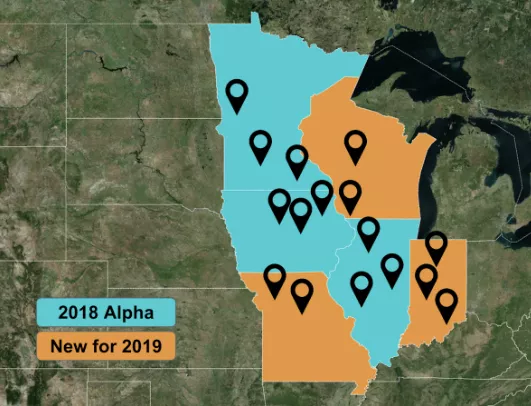
We worked across Bayer Crop Science and initiated internal use of hybrid selection model insights in Breeding and Tech Development & Agronomy for 2019 testing shifts. This work started by identifying top predictive features from field level seed placement model and a deep understanding of the data coverage by feature class in the past R&D testing. We then leveraged FieldView data insights to metricize coverage by feature class in testing networks for opportunity on site selection shifts. With the excellent collaboration, Breeding has identified additional new locations to better capture conditions in FieldView farmer fields.
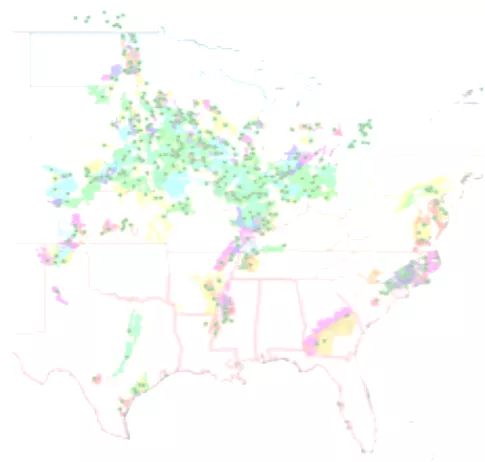
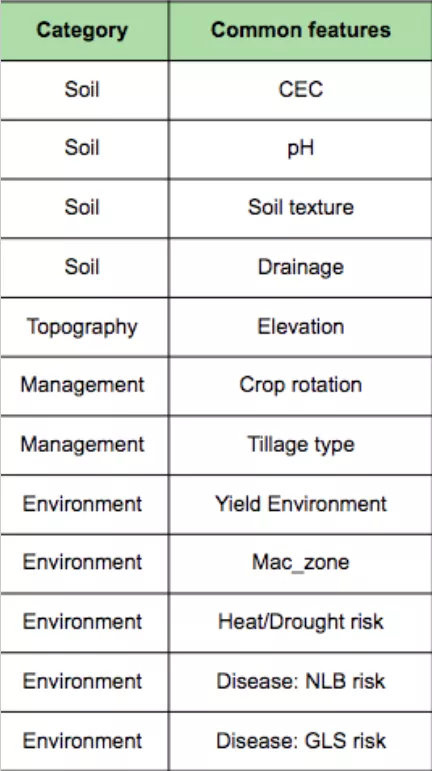
Product placement science research work is a collaborative effort guided by Science leadership teams and collaborations across Bayer and Climate LLC Science teams.
Dongming Jiang, Senior Quantitative Researcher
Dongming Jiang is a Senior Quantitative Researcher on the science modeling team at Climate LLC, where he specializes in developing the novel predictive framework, metric, machine learning and & deep learning based algorithms for Seed Advisor to guide personalized product selection in farmers’ fields. Dongming previously worked as a Statistician at Bayer. He has built upon his extensive experience in R&D pipeline analytics & has been helping drive shift to predictive science across the company. Dongming received his Ph.D. in Statistics from the University of Cincinnati.
Nikisha Shah, Quantitative Researcher
Nikisha Shah is a Quantitative Researcher on the science modeling team at Climate LLC and holds a PhD in Chemical Engineering from Rutgers University. She has been with Climate for almost 1 and a half years, focusing on developing optimization models, framework to guide personalized portfolio recommendation and product selection for farmers’ fields. Prior to starting her current role, Niki help drive new sites for centralized seed processing plant for Bayer's breeding organization.
Matt Sorge, Science Team Member
Matt Sorge is a member of the science team, focusing on bringing new features from concept to commercialization. He has traveled extensively over the last two years to farms across the U.S., working with farmers and research to advance Seed Advisor, to market. He graduated from Iowa State University in 1997 with a degree in genetics. Prior to starting his current role in 2016, Matt developed automation and robotics systems in Bayer Crop Science’s breeding organization. Matt has been an associate science fellow since 2011 and lives in St. Louis with his wife and three children.